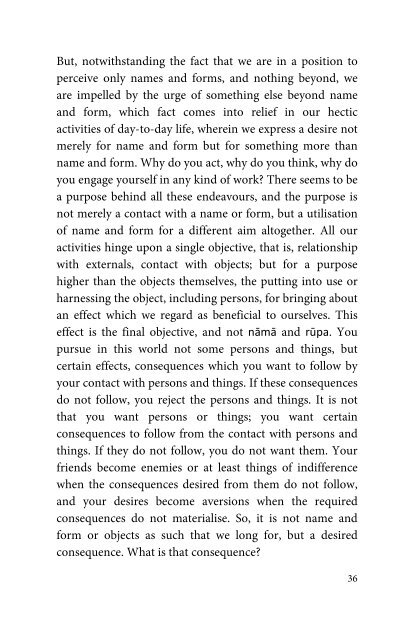Mandukya_Upanishad
Mandukya_Upanishad
Mandukya_Upanishad
Create successful ePaper yourself
Turn your PDF publications into a flip-book with our unique Google optimized e-Paper software.
But, notwithstanding the fact that we are in a position toperceive only names and forms, and nothing beyond, weare impelled by the urge of something else beyond nameand form, which fact comes into relief in our hecticactivities of day-to-day life, wherein we express a desire notmerely for name and form but for something more thanname and form. Why do you act, why do you think, why doyou engage yourself in any kind of work? There seems to bea purpose behind all these endeavours, and the purpose isnot merely a contact with a name or form, but a utilisationof name and form for a different aim altogether. All ouractivities hinge upon a single objective, that is, relationshipwith externals, contact with objects; but for a purposehigher than the objects themselves, the putting into use orharnessing the object, including persons, for bringing aboutan effect which we regard as beneficial to ourselves. Thiseffect is the final objective, and not nāmā and rūpa. Youpursue in this world not some persons and things, butcertain effects, consequences which you want to follow byyour contact with persons and things. If these consequencesdo not follow, you reject the persons and things. It is notthat you want persons or things; you want certainconsequences to follow from the contact with persons andthings. If they do not follow, you do not want them. Yourfriends become enemies or at least things of indifferencewhen the consequences desired from them do not follow,and your desires become aversions when the requiredconsequences do not materialise. So, it is not name andform or objects as such that we long for, but a desiredconsequence. What is that consequence?36



